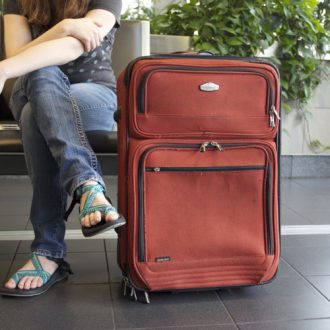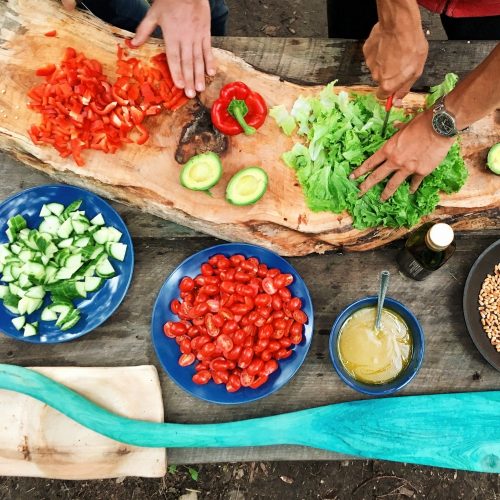
Top Tips for Making food in Hostels/Airbnb
Dear Sandy,
While traveling, you may want to prepare your food in your hostel or Airbnb for a variety of reasons. The top two that come to my mind are saving money and trying to eat healthy (something that can be difficult when you want to try everything while abroad). I would say that, inherently, these two goals are pretty related as they allow you to control what you are purchasing and putting into your body. Today we have some ideas about how you can do both of these things without having your own kitchen and normal supplies with you:
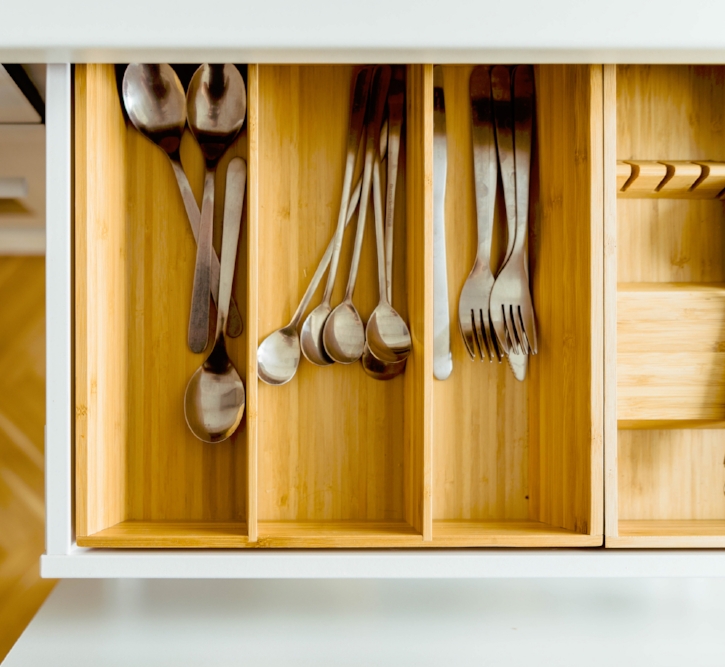 Check what you have at your disposal:
Check what you have at your disposal:
Before you decide that you are going to be cooking a four course meal every night you are in town, make sure to do a reconnaissance of the place you are in. Personally, I focus on two aspects: the kitchen itself and the ‘freebies’ I can use.
-
The tools available: Hostels and Airbnb will vary from place to place and you shouldn’t count on having the best kitchen or utensils (think only two pans or no knives). This means that before you make any plans to go gourmet in your kitchen, you have to see what you are working with. If you are lucky and the kitchen is fully equipped, you are go to move forward whatever strikes your fancy. However, if you are less fortunate, you will have to adapt to what is available to you—which shouldn’t be a problem either!
-
The food/spices you can use: A lot of places let you use the food that has been left by previous guests or provide you with things like olive oil, salt, pepper. Before you go shopping, check out what you already have available to you in order to save money and create less waste.
-
Free breakfasts: If you are in a place that offers free breakfast, take advantage! Even if all the options aren’t the healthiest in the world (think Nutella toast) and might not fill you up, you can often find options like eggs or yogurt that can help you last till lunch. Consider how you can make your hostel breakfasts last longer by adding foods to fill you up such as avocado or peanut butter.
Pass it on: It is nice to have some freebies, so keep that in mind when you are moving on. For example, if you are opening a litre of milk but won’t be taking it on the road with you, consider leaving it with a note stating that it is free for other guests.
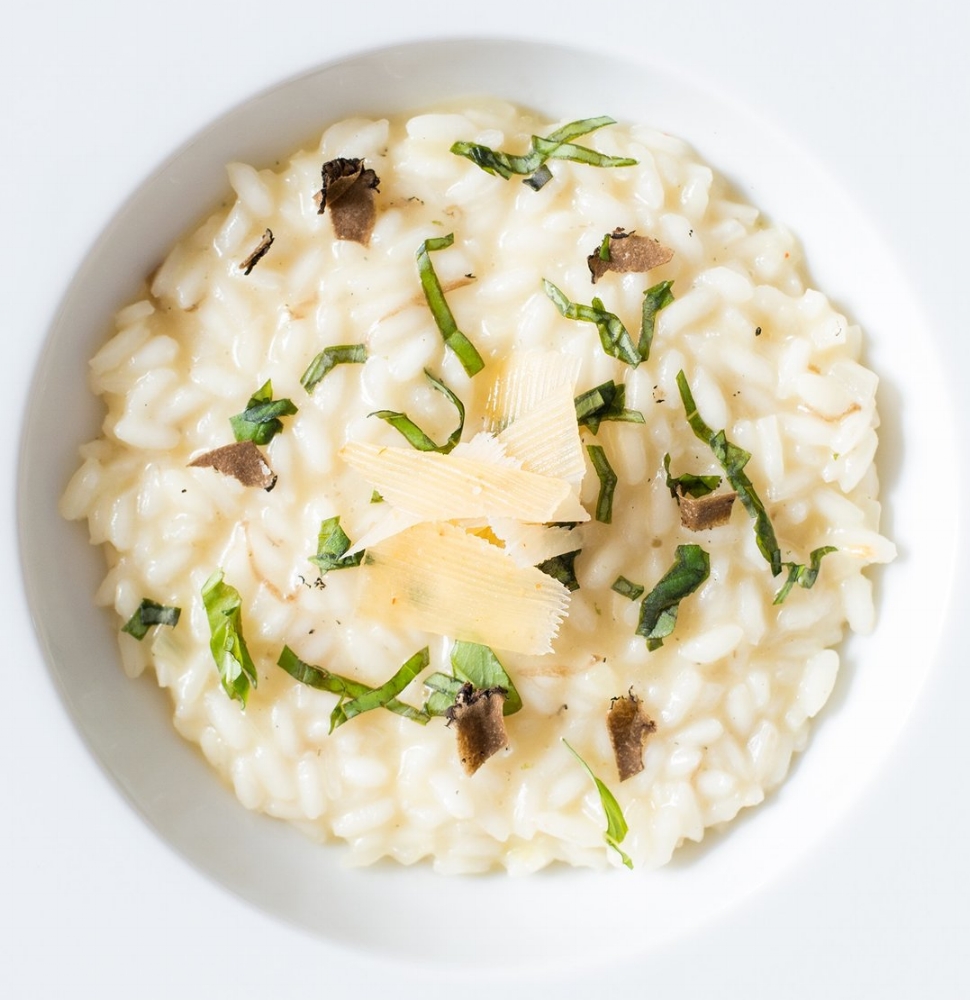 Plan simple meals:
Plan simple meals:
If you are really planning on eating at ‘home’ to save money, consider traveling with staple, non-perishable goods like pasta, rice, spices, etc. as they will last a long time and make your life easier as you won’t have to buy them at every stop. At the same time, finding simple meals that you like will be key for feeling like your cooking experience is successful in a new kitchen. The easier you make things for yourself, the easier they will be! And food doesn’t have to be bland just because they are 5 ingredients or less.
Let’s look at a couple of examples:
-
One-pot-meals: Things like mushroom risotto or mushroom-rice soup that you can throw together in one pot with rice (a traveling staple), mushrooms, onions (and other fresh options from a local market or store), and stock (from a store, stock cubes you have with you, or water in a pinch). Add in some parmesan cheese for risotto or sliced bread with the soup and you are good to go.
-
One-pan-meals in the oven: If you are roasting up a bunch of veggies, why not add a chicken breast, piece of salmon, or even some tofu to make it a whole meal. By making sure all your ingredients are in one spot, you are not taking up all the cooking space (especially important if you are sharing in a hostel) and have less washing up to do.
-
Salads: I don’t subscribe to the idea that salad = lettuce and think that it is perfectly acceptable to pick up whatever looks good at the market/store and throw it together into what I would refer to as a salad. Think anywhere from the classic lettuce based caesar salad to a pasta salad to a tomato, mozzarella, basil salad. They are all fair game.
-
Snack meals: I know that there are people who need to have a full sit-down meal every time they eat, but I also like to eat what I consider ‘snacks’ for meals—including breakfast. If you have some nice bread/crackers/etc. and add anything from fresh veggies (tomatoes, cucumber, etc.) to protein (peanut butter, tuna, cured meats) and a couple of extras like olives, chips, peanuts, you have what is, in my mind, the equivalent of a meal.
Pro-tip: This kind of meal pairs especially well with a bottle of wine and people you’ve just met (and who have their own bits to add).
Also consider how you can create overlap between meals. This is especially important if you want to eat most of your meals in because it allows you to reuse what you bought for one meal later on in your stay. It is not a question of overthinking, but trying to figure out how something from breakfast (such as boiled eggs) can make their way into your lunch or how something from the night before can be incorporated into the meals the following day (such as roasted veggies with eggs for breakfast or in a wrap for lunch).
For example, if I am looking at the meals above, I would think about how the rice and stock cubes could act as staples that I take with me on my trip. The first night in the hostel I can roast veggies (sweet potatoes, potatoes, zucchini, mushrooms, and onions, buying only what I need) and chicken, saving half the mushrooms and onions for the following night when I make a simple risotto. With the leftovers, I can create a green salad with roasted veggies and chicken. I would also save some lettuce for dinner to accompany the risotto.
Go Shopping:
As someone who really doesn’t like shopping for things, I find it amazing how much I enjoy exploring markets and stores to buy food! When you are shopping think about what you’ve planned to make and what you need to make it. If you can, buy local ingredients—not only will they be fresher, they will probably be less expensive too! One way I love to buy local is by shopping at markets which is also a great way to see how the community comes together around an event that is as important as food. (We even wrote a whole article about taking advantage of this kind of shopping in case you’re not really sure how!)
At the same time, remember that you might not be able to find everything on your list. This is normal! Outside of countries and cities with massive supermarkets, it is more common to find things that are local and in season. If this happens, you have two options: either scratch your initial plan and decide to make something else OR figure out if you can substitute another ingredient for the one you are missing. If you are aware that this might happen, you can always have a back-up plan (or go with the flow and cook whatever looks good).
Pro-tip: Pasta and rice (simple starches) and fresh veggies and fruits will probably be your best bet for good prices and quality. However, pay attention to the differences during your shopping trips and you will get better and finding what you want at a good price.
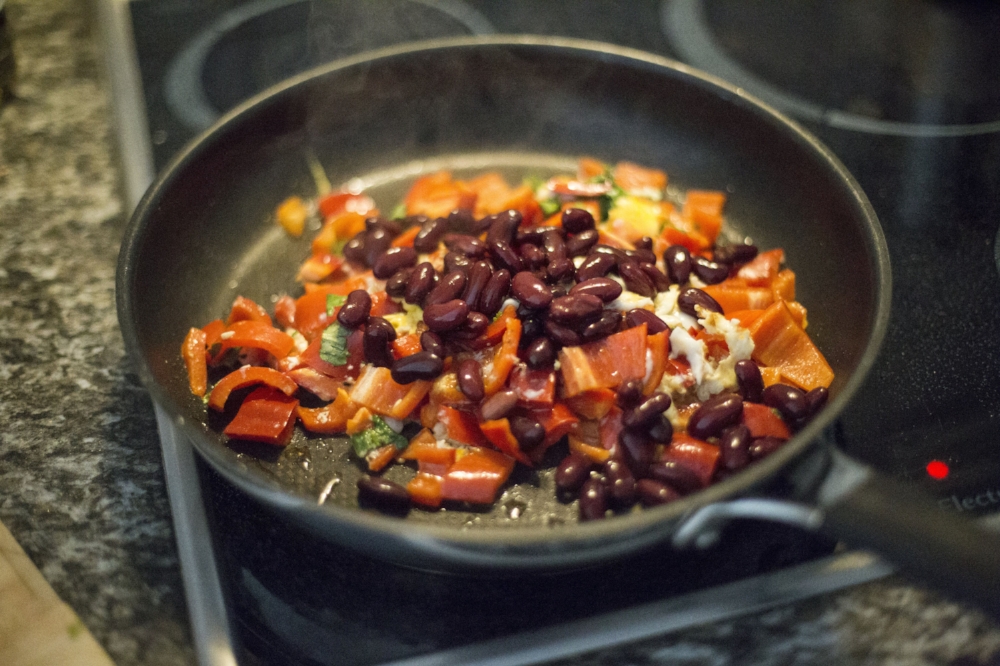 Enjoy the cooking and whatever you make:
Enjoy the cooking and whatever you make:
For me, as a lover of all things food, this is the most important part of cooking, wherever you may be. Try and relax as you prepare the food (it won’t be as easy as when you are in your own kitchen, so just let it flow). Consider opening a couple of beers or having a glass of wine/juice and really enjoy the process whether you are alone or making new friends. And when it is time to sit down and taste the food you’ve made, make sure really enjoy the meal!
What’s your favorite memory of eating at a hostel?
Sincerely,
Spain




